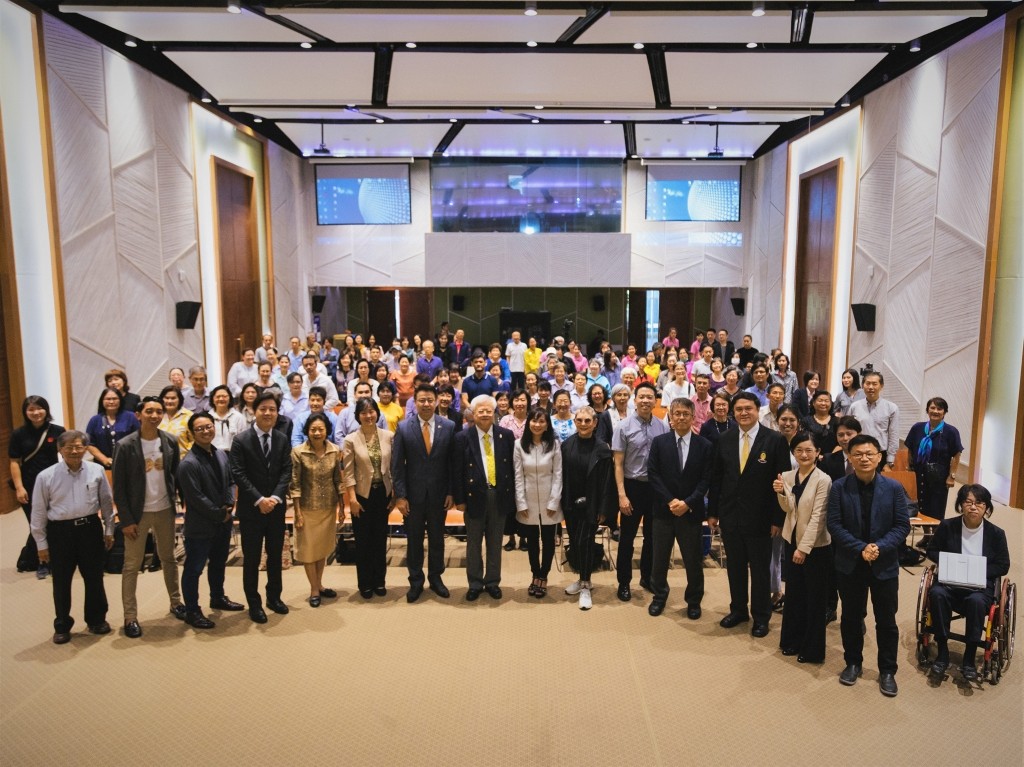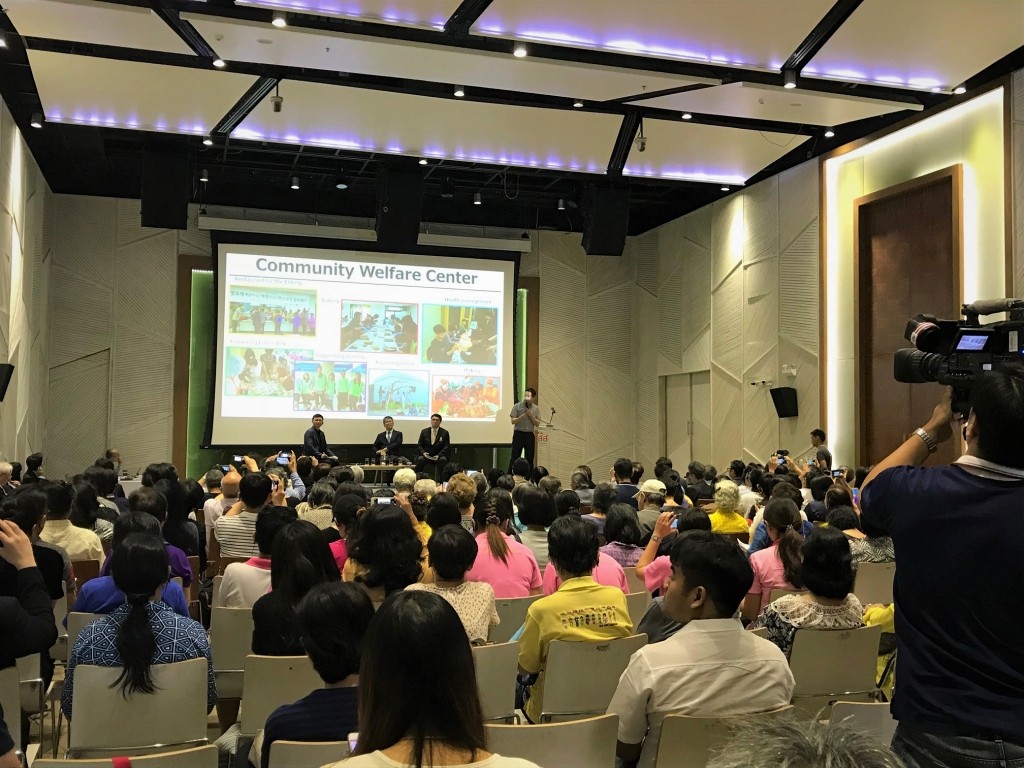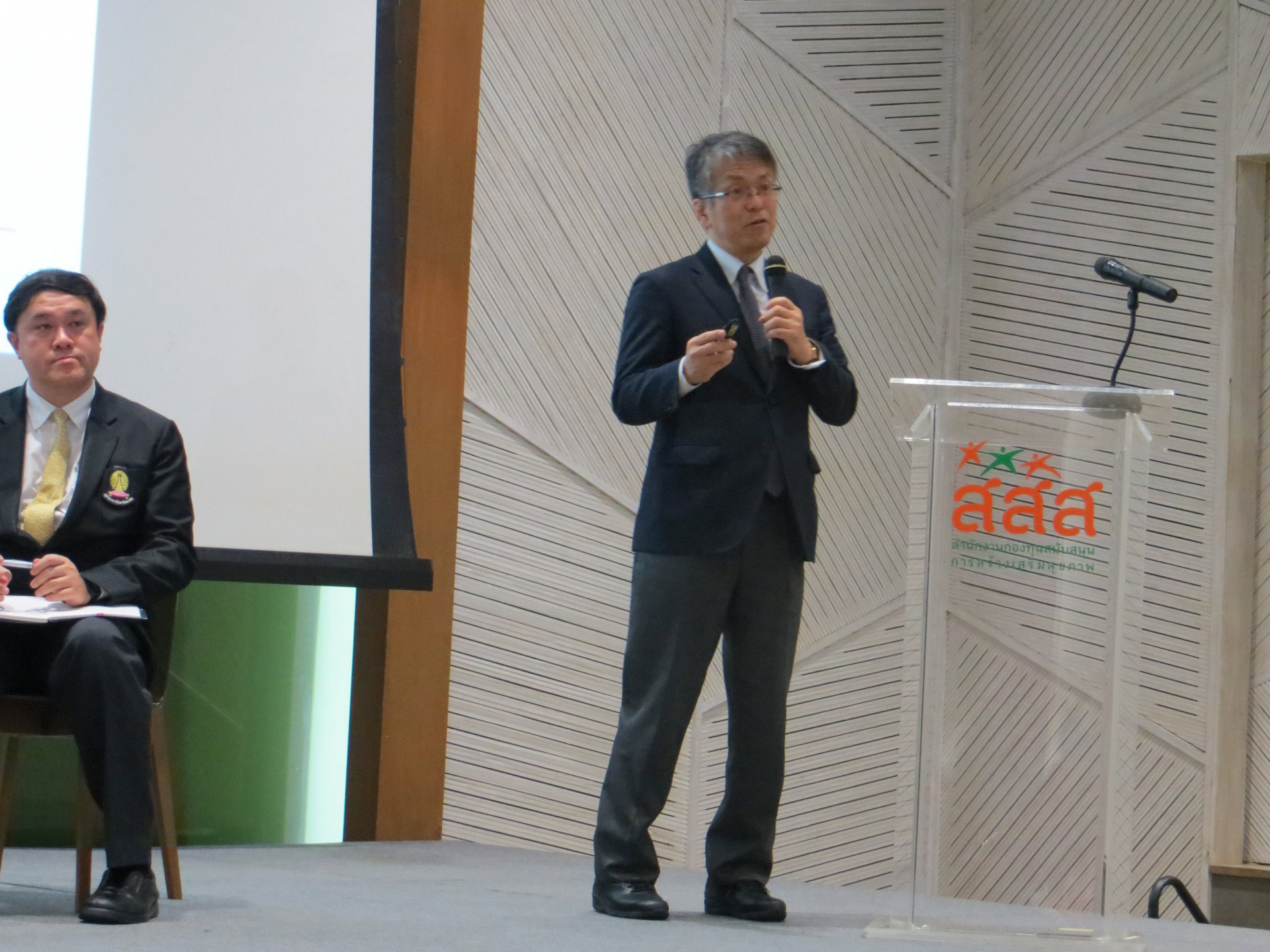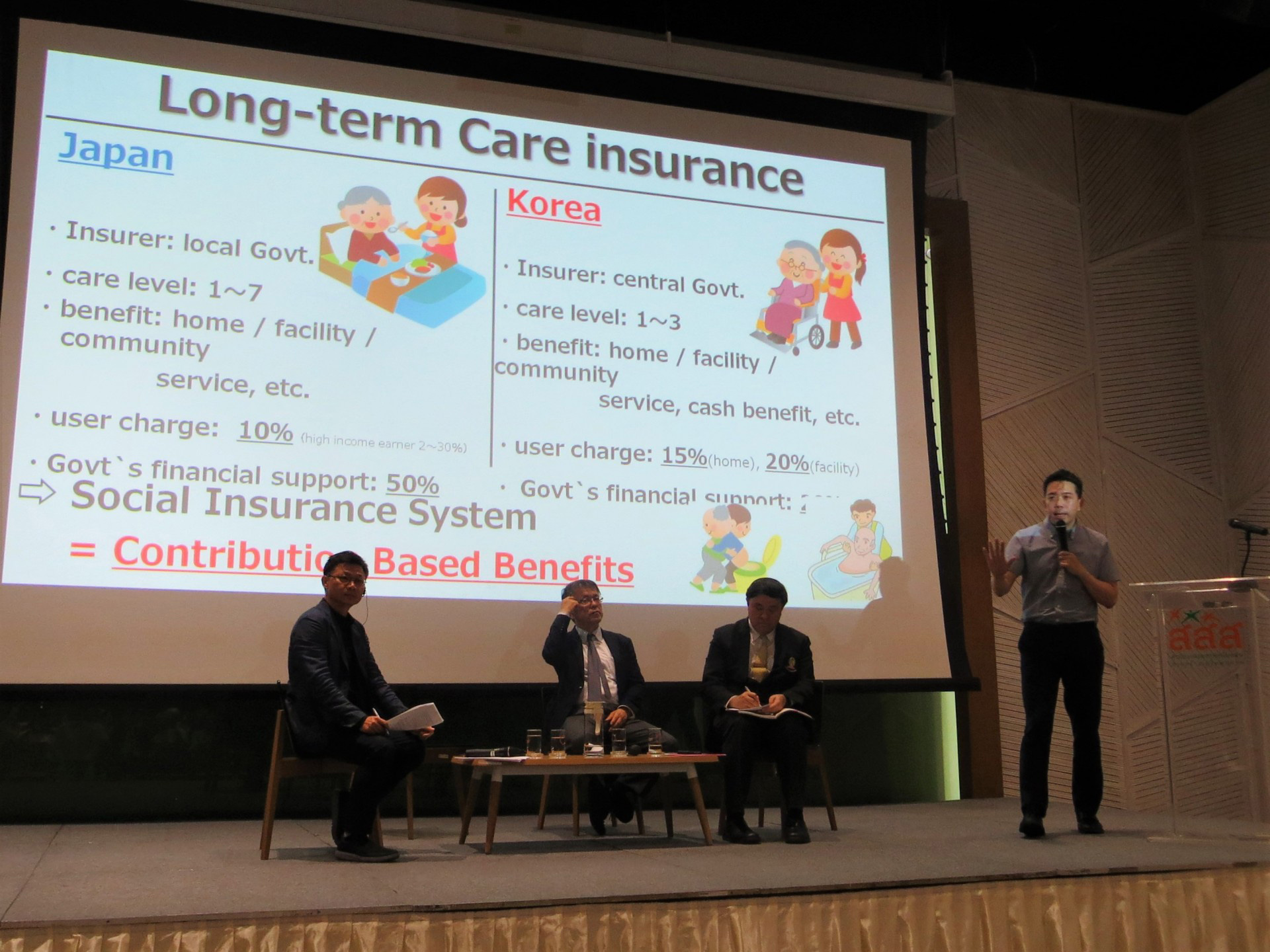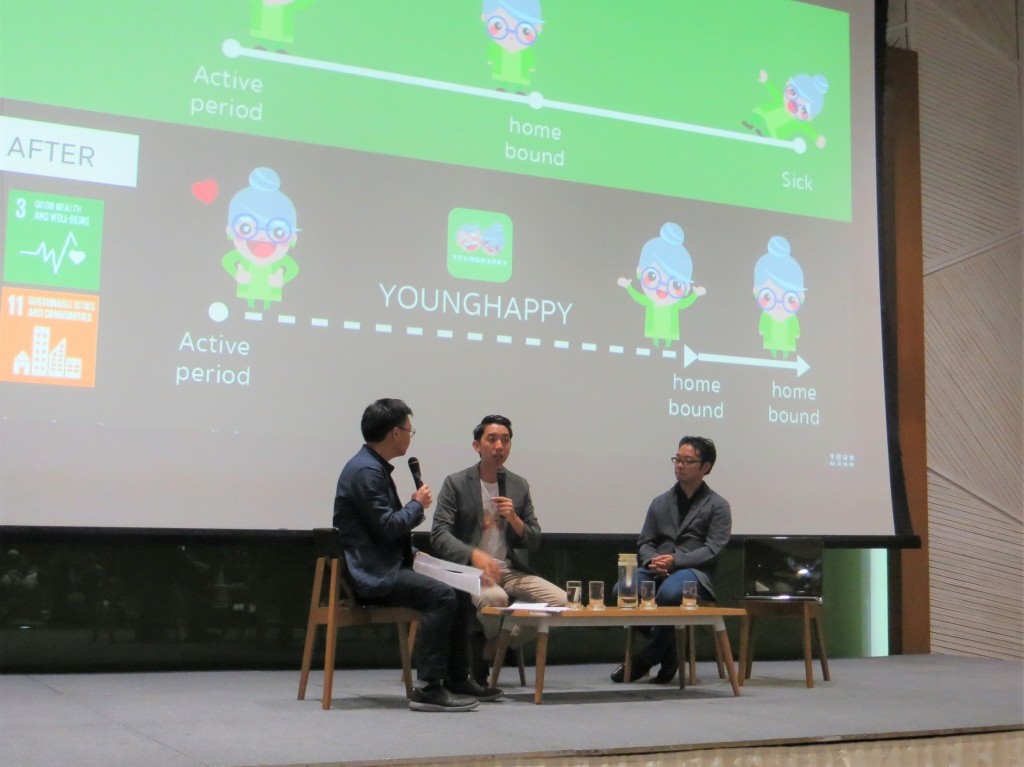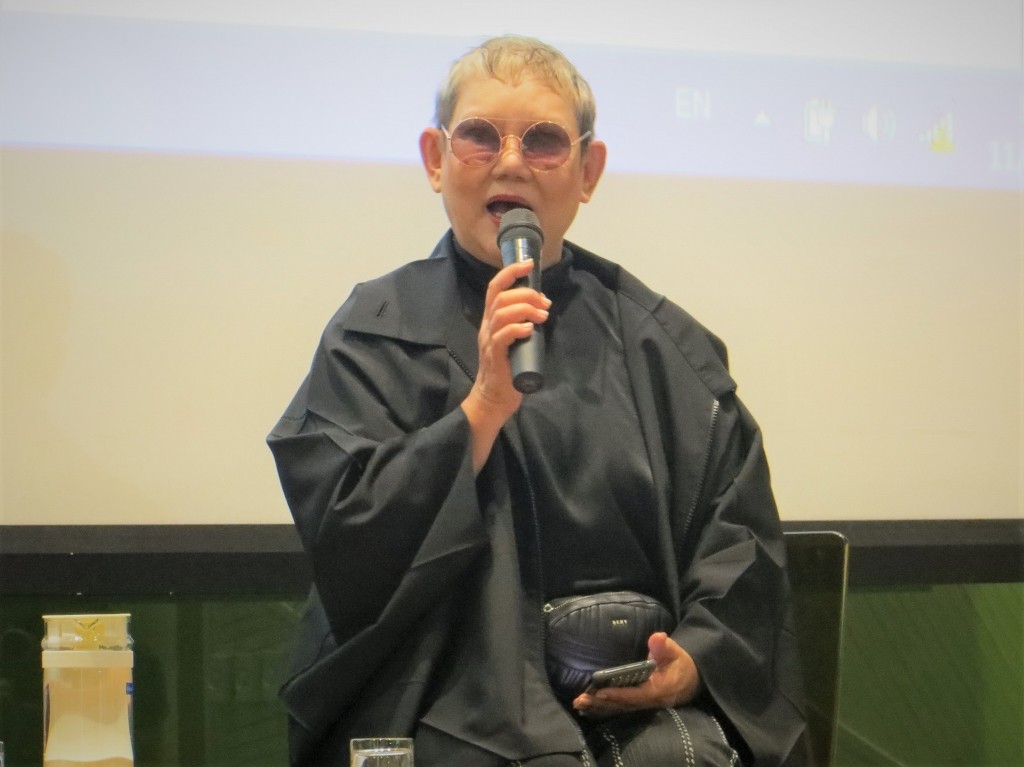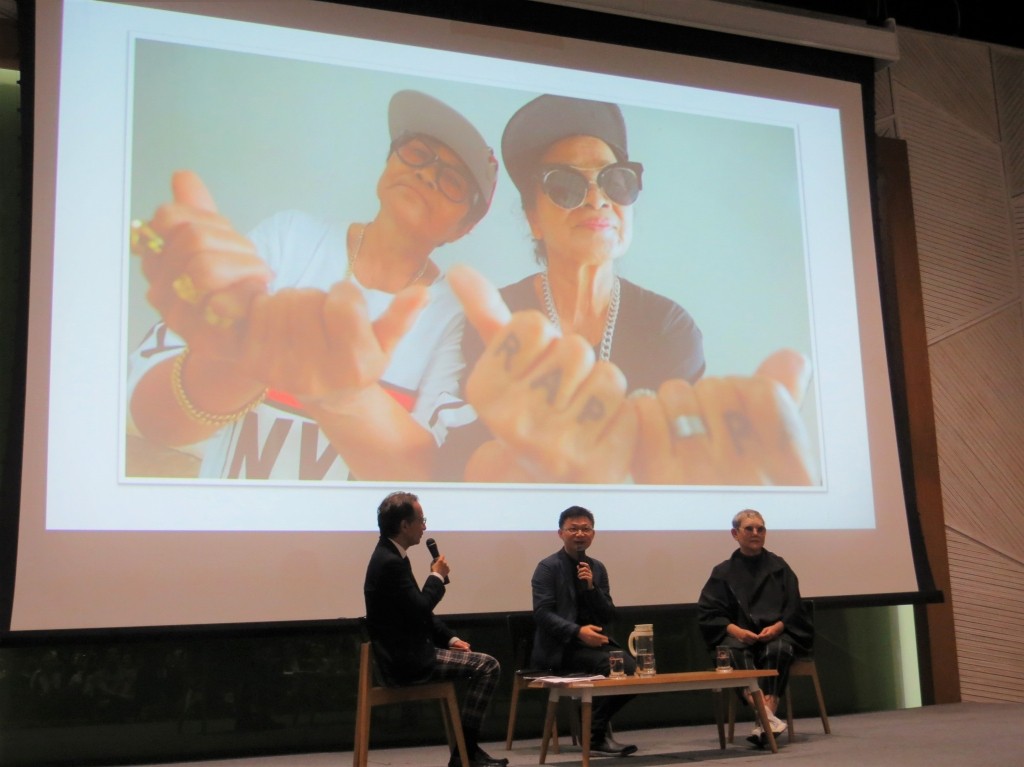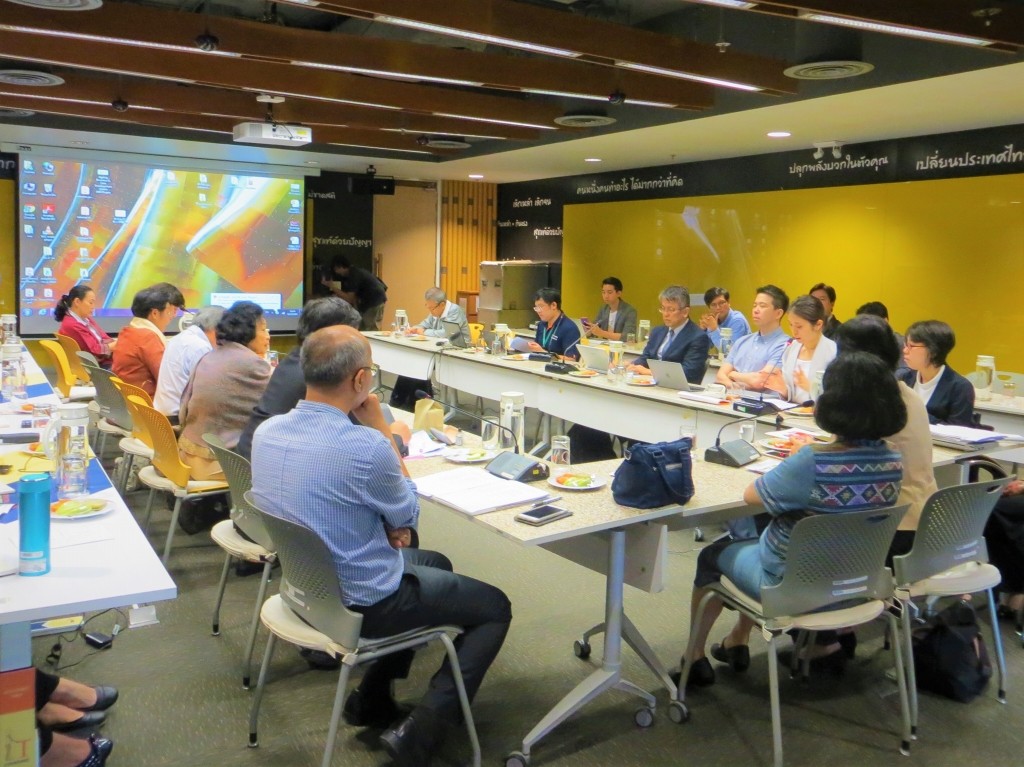In the second session, Mr. Thanakorn Phromyos, co-founder of ‘
Young Happy’, a social start-up enterprise operating in Thailand, and Mr. Yojiro Koshi, the founder and CEO of
TalentEx, engaged in dialogue on multigenerational interaction using digital technology and ageless entrepreneurship and labor.
Young Happy’s activities were both novel and impressive. For example, the enterprise has developed a mechanism to promote the social participation of older persons, in which those who take part in
Young Happy’s activities get a point via their smartphone. Given that more than half of the approximately 200 participants in the symposium were
Young Happy members, it was clear that the enterprise is very popular. The other speaker, Mr. Koshi, has been operating an internet-based employment agency based in Bangkok, Japan and Russia. Although his business does not focus on older persons, he shared his interesting experience with an older female entrepreneur, an artisan making the straps of the
geta sandals, a kind of traditional Japanese footwear. The entrepreneur had participated in Mr. Koshi’s entrepreneurship support project for adolescents and was able to set up her business through interacting with young entrepreneurs.
